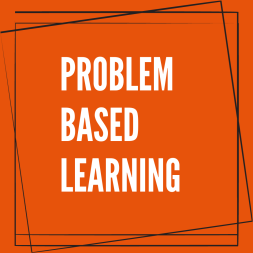
Problem-Based Learning: Experiential Learning for the 21st Century
This course is an experiential, project-focused exploration of the transformative power of problem-based learning in education. Together we will build the skills, competencies, and knowledge necessary to design exceptional problem-based learning experiences that unlock student creativity, engagement and critical thinking.
Description
Problem-Based Learning (PBL) is a student-centred approach to teaching in which students learn by working collaboratively to solve authentic problems. It is a powerful learning method that can help students develop critical thinking, problem-solving, communication, and teamwork skills.
PBL is based on the constructivist theory of learning, which posits that people learn best by actively constructing their own knowledge.
In a PBL classroom, students are presented with a problem to solve at the beginning of the unit. They then work in groups to research the problem, develop solutions, and present their findings to the class. The teacher acts as a facilitator, providing guidance and support as needed.
PBL has been shown to be an effective teaching method in a range of subjects, including science, math, social studies, and English language arts. It is also well-suited for interdisciplinary learning.
Working collaboratively with other educators, this course will help you:
Understand the core ideas and principles of Problem-Based Learning.
Learn ways to use Problem-Based Learning to build student creativity, critical thinking, and collaboration.
Learn how to develop and design problem-based learning experiences.
Develop techniques and methods for assessing student learning and progress in Problem-Based Learning.
Learning objectives
Understanding the theory and practice of problem-based learning.
Learning how to design and develop problem-based learning experiences.
Learning how to integrate problem-based learning into the wider curriculum.
Developing approaches to and methods of assessment in problem-based learning experiences.
Gaining experience developing problem-based learning experiences.
By the end of the course, participants will have the skills, knowledge, and confidence to design and run problem-based learning experiences in their own educational context.
Methodology & assessment
The workshop will involve:
- design thinking
- group work
- project work
- individual work
- experiential learning
- creative learning activities
- design sprints
- problem-solving
- critical thinking
- reflective exercises
Throughout the workshop, participants will have the opportunity to reflect on what they are learning and to share their insights with others. This will help them to solidify their learning and develop a deeper understanding of Problem-Based Learning.
Assessment will be based on peer, group, and individual reflective practices supported by feedback, guidance, and commentary from the workshop facilitators. There will be no formal assessment process.
The overall goal of the workshop is to help teachers and educators develop the skills and knowledge they need to design and develop Problem-Based Learning in their own educational contexts.
Certification details
At the end of the course, each participant will receive a certificate of attendance that documents their learning and certifies their participation. These certificates are issued on behalf of SWUX and are signed by the course leader or facilitator.
If requested, a Europass Mobility Certificate can also be issued.
All of our certificates meet Erasmus Quality Standards and include the course title, date, and location, a description of the course, its learning outcomes, and the course leader or facilitator.
Any additional documentation required by schools or education organisations can be supplied upon request, and we work hard to ensure that participants and organisations are supported throughout the certification and validation process.
Pricing, packages and other information
-
Price:875Euro
Additional information
-
Language:English
-
Target audience ISCED:Primary education (ISCED 1)Lower secondary education (ISCED 2)Upper secondary education (ISCED 3)
-
Target audience type:Head Teacher / PrincipalNot-for-profit / NGO staffTeacher
-
Learning time:20-25 hours

